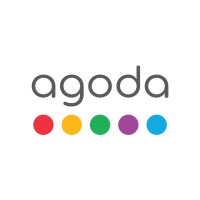
Bolt
At Bolt, we're building a future where people don’t need to own personal cars to move around safely and conveniently. A future where people have the freedom to use transport on demand, choosing whatever vehicle's best for each occasion — be it a car, scooter, or e-bike. We're helping over 200 million customers move around in more than 600 cities globally while also supporting more than 4.5 million drivers and couriers to earn a living. The best bit? We're only just getting started. Read more at bolt.eu






